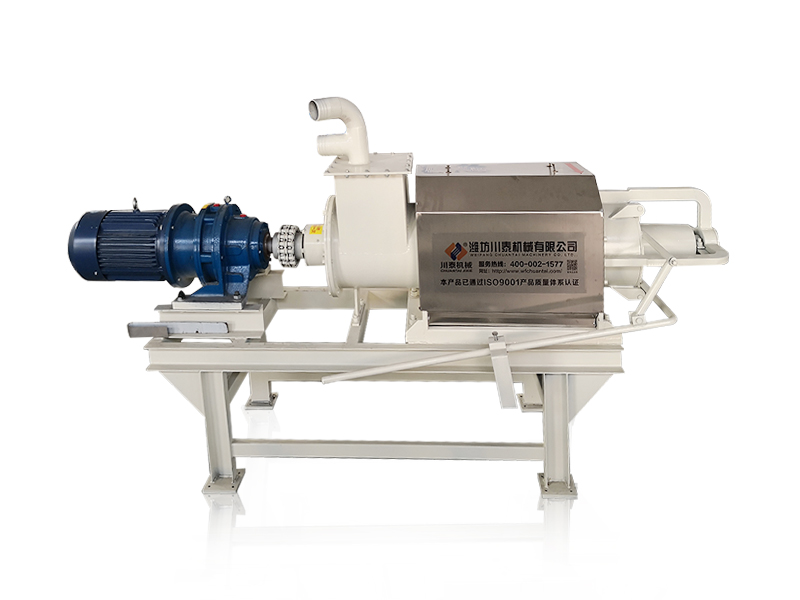
Abstract:
Livestock farming plays a crucial role in meeting global food demand, but it also generates significant amounts of waste that can pose environmental challenges. The development and implementation of effective waste management systems are essential for mitigating the environmental impact of livestock operations. This article focuses on the utilization of liquid-solid separators as a key component in managing livestock waste, highlighting their benefits and applications in promoting sustainable agriculture.
Introduction:
Livestock waste, consisting of manure and wastewater, contains nutrients such as nitrogen and phosphorus, which can contribute to water pollution if not properly managed. Liquid-solid separators offer a viable solution to address this issue by efficiently separating solid and liquid fractions, enabling more controlled and sustainable waste management practices.
Working Principle:
Liquid-solid separators operate based on physical and mechanical processes to separate solid particles from liquid waste. Common mechanisms include sedimentation, centrifugation, and filtration. These separators can be integrated into existing waste management systems, enhancing their efficiency and reducing the environmental impact of livestock farming.
Benefits of Liquid-Solid Separators:
3.1. Nutrient Management: Separating solid and liquid fractions allows for better control of nutrient distribution, preventing excessive concentrations of nutrients in specific areas.
3.2. Environmental Protection: By reducing the discharge of solid particles into water bodies, liquid-solid separators contribute to the prevention of water pollution and protect aquatic ecosystems.
3.3. Odor Reduction: Separating solids from liquid waste helps minimize unpleasant odors associated with decomposing organic matter, creating a more pleasant environment for both livestock and nearby communities.
3.4. Resource Recovery: The separated solids can be further processed into valuable fertilizers or biomass, promoting resource recovery and circular economy principles.
Applications:
Liquid-solid separators find application in various livestock farming scenarios, including:
4.1. Dairy Farms
4.2. Poultry Farms
4.3. Swine Operations
4.4. Cattle Ranches
Challenges and Considerations:
5.1. System Design: The efficiency of liquid-solid separators depends on proper system design and sizing to accommodate the specific needs of each livestock operation.
5.2. Maintenance: Regular maintenance is crucial to ensure optimal performance and longevity of the separator equipment.
5.3. Cost-Benefit Analysis: Livestock farmers should conduct a cost-benefit analysis to evaluate the economic feasibility of implementing liquid-solid separators on their farms.
Conclusion:
Liquid-solid separators present a promising solution for enhancing the sustainability of livestock farming by improving waste management practices. Their ability to reduce environmental impact, control nutrient distribution, and promote resource recovery makes them valuable tools in the pursuit of more sustainable and eco-friendly agricultural practices. Future research and technological advancements in this field are essential for further optimizing these systems and expanding their adoption across diverse livestock operations.




If your company wants to establish a business relationship with us, please briefly describe the cooperation intention and send an email to:chuantaiscrewpress@gmail.com























































































![[list:title]](/static/upload/image/20240528/1716877114510915.jpg)